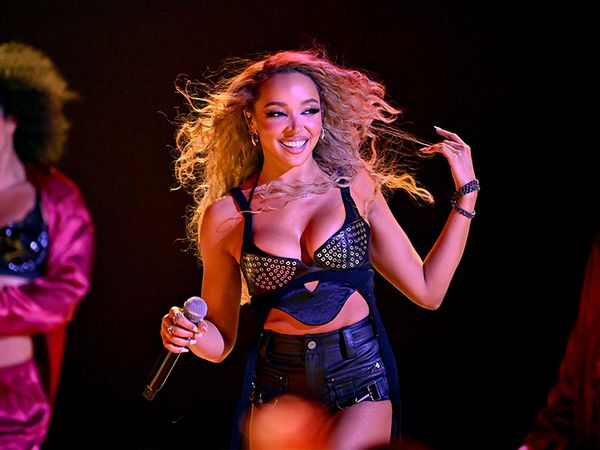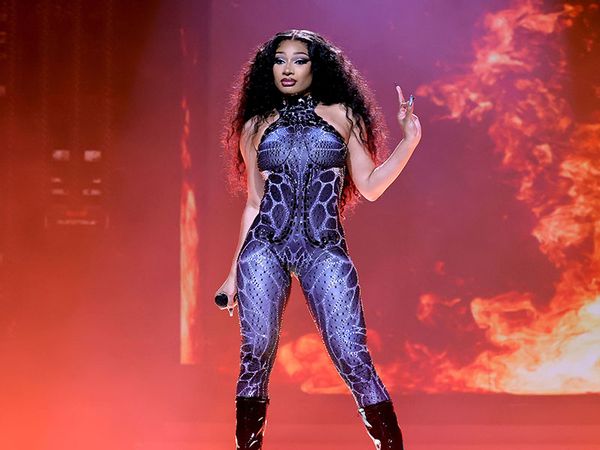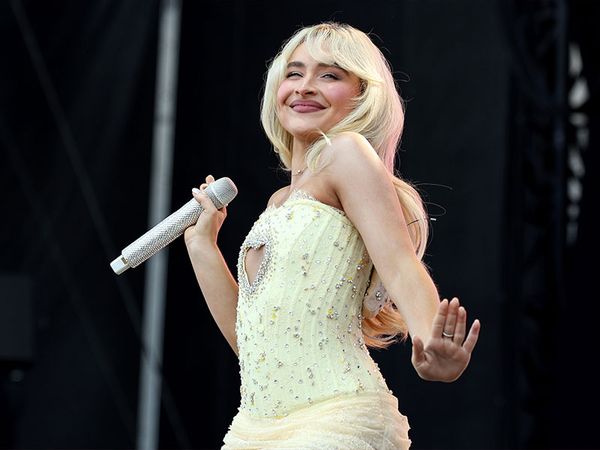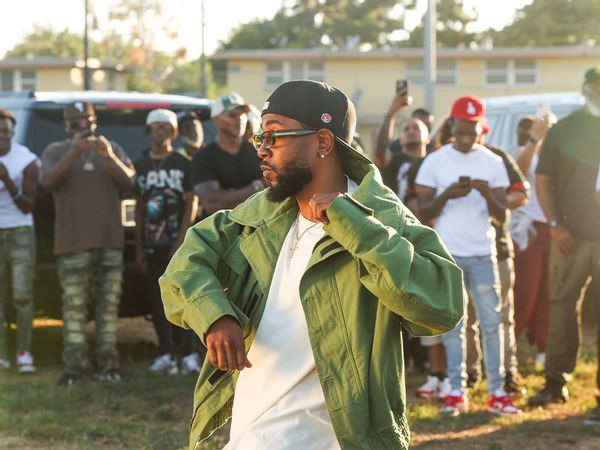It’s been a glorious year for music.
Pop divas like Charli XCX and Chappell Roan have dominated the airwaves, and even alternative R&B has broken through to the public because of silly TikTok memes and dances. In a year filled with the urge for art, creativity and distraction as a tool to escape our reality — music has delivered. And man, it has never been better for young people.
Whether you hear a song on the radio in your car, in a bar or through your headphones — this year’s music has punctured through to the Gen Z’s mainstream creating cultural moments like rapping in a bar full of people — word for word, dissing Drake and Nicki Minaj – or putting is “somebody gonna match my freak” in a Hinge bio to find love online.
But it would be remiss of me not to mention that pop star Taylor Swift also had a killer year with Eras Tour coming to a close after almost two years on the road, her relationship with footballer Travis Kelce dominating headlines (and Christmas movies) and her album “The Torturted Poets Department.” While her single “Fortnight” featuring Post Malone landed well with Swifties and on the charts, it flopped with Gen Z. The song was not as concise and impactful as her past works on “Folklore,” which is why it did not qualify for this list.
Other artists have been at the top of their game, playing in the soundtracks of our lives since our adolescence. These music industry giants do what they always do — consistently delivering and even outpacing themselves. Seasoned industry musicians like Beyoncé and Kendrick Lamar are decades into their careers yet continue their tight grasp on culture and music regardless across generations. Always reinventing themselves, artists like these show us what true mastery in their craft looks like, and we are all the better for their savviness.
Salon takes a deep dive into some of the best songs that resonated with Gen Z in 2024:
“Bodyguard” might not be the flashiest song on Beyoncé’s sprawling 27-track country debut “Cowboy Carter” but it’s definitely one of the grooviest. Imagine listening to “Bodyguard” while riding in a ’70s top-down convertible with your arms out, feeling the wind. “Bodyguard’s” popularity even prompted fans, critics and Swifties alike to theorize that it was none other than Swift singing background vocals.
The folky-pop song is reminiscent of Stevie Nicks and Christine McVie’s most popular ventures in Fleetwood Mac like “Dreams” or “Rhiannon.” Beyoncé was capitalizing on a resurgence online with young people just discovering the complicated, fascinating lore and music of Fleetwood Mac.
But the song’s greatness sneaks up on you like a stealth bodyguard. Maybe that’s because of “Cowboy Carter’s” perfectly crafted live instrumentation. Or because of some of the notable songwriters like Beyoncé herself, her frequent collaborator Terius Adamu Ya Gesteelde-Diaman also known as The-Dream and indie-pop singer Ryan Beatty (by way of Brockhampton — another band the internet’s obsessed with).
Beyoncé kept the song in the cultural conversation when she also released a post-Halloween video to the tune of “Bodyguard” while dressed in some of Pamela Anderson’s most iconic looks. Since then, I’ve increasingly seen similar fuzzy pink hats worn on the streets of New York City.
The video even made its way back to Anderson, who has also had a resurgence in her career lately, especially with her new film “The Last Showgirl.” Anderson said, “To have created memorable characters full of heart and vulnerability and love . . . I like to see those, when those things come up . . . because you think in the moment, they weren’t really celebrated. But now looking back, they’re still on people’s minds.”
Also, “Bodyguard” was a hit with the youth on TikTok. People also used the song endlessly, grooving and saying the song makes them want to have their own country love story, while wearing cowboy boots and a matching hat. Fans may have a chance to put on their Sunday Best like they did for the Renaissance Tour. It is rumored that Beyoncé may go on tour again — so the standout song could have its moment in the sun yet again.
“Bodyguard” was my song of the year in my Spotify Wrapped, and I think it is solely because of the gnarly electric guitar solo matching Beyoncé’s killer vocals in the bridge. It’s addictive and an excellent showcase of Beyoncé’s ever-evolving musicianship.
 Tinashe performs onstage during the 2024 BET Awards at Peacock Theater on June 30, 2024 in Los Angeles, California. (Paras Griffin/Getty Images for BET)
Tinashe performs onstage during the 2024 BET Awards at Peacock Theater on June 30, 2024 in Los Angeles, California. (Paras Griffin/Getty Images for BET)Tinashe is one of the most slept-on alternative R&B artists of this decade. The singer has always teetered on breaking through the mainstream but she’s held onto relevance mainly because of her 2014 hit single “2 On.” The former RCA artist left the label after years of underperforming albums and lack of promotion.
However, leaving and then starting her own independent label, Tinashe Music Inc., bolstered the artist to a creatively stimulating height in her career. In 2019, she released the album “Dance For You,” with some of the most experimental R&B, pop and dance music on the scene.
Finally this year, Tinashe has received her flowers and she has TikTok to thank. Her single “Nasty” for her seventh album, “Quantum Baby,” picked up steam almost immediately on the app because of a sultry dance associated with the song. Not only did the dance go viral, but a lyric in the song, “Is somebody gonna match my freak?” instantly became inducted into the Gen Z-slang dictionary this year. Over the summer, I even saw a coffee shop in Brooklyn with a sign out front saying, “Matcha my freak?” Her lyrics caught on like wildfire illuminating the ever-changing online rhetoric young people are always adopting.
Outside of Gen Z slang, the song helped reach people who had no idea who the singer was or even forgot she existed outside of “2 On.” In some of New York’s hottest music spaces, Tinashe could heard blaring through the speakers or even performing live. The fly-your-freak-flag anthem also came at a time of renewed sex-positivity in music from artists like Sabrina Carpenter.
It’s important to note though, “Nasty” isn’t just a fun, meme-able song and dance with trap beats and silly, horny lyrics. “Nasty” is a culmination of Tinashe’s relentless dedication to always trying something new and the public finally recognizing her genius even though she’s been light years ahead.
 Megan Thee Stallion performs onstage during the Hot Girl Summer Tour at Crypto.com Arena on June 21, 2024 in Los Angeles, California. (Kevin Winter/Getty Images for Live Nation)
Megan Thee Stallion performs onstage during the Hot Girl Summer Tour at Crypto.com Arena on June 21, 2024 in Los Angeles, California. (Kevin Winter/Getty Images for Live Nation)Years after a traumatic shooting and relentless attacks from people in the hip-hop industry — Megan Thee Stallion bit back and hard in the diss track “Hiss.”
The Houston-bred rapper opened the track by setting things straight with a loaded aim at her haters: “I just want to kick this s**t off by saying, ‘F**k y’all!’ I ain’t gotta clear my name on a motherf**kin’ thang.”
The very traditional rap song takes the listener through a list of people who have wronged and denigrated the rapper’s name. Released in January, “Hiss” set the tone and standard for rap beefs and diss tracks to come later in the year. Before Kendrick Lamar, Megan was the first rapper of 2024 to set her sights on knocking Drake down off his pedestal. While it took until “Not Like Us” to really humble Drake, “Hiss” was the gasoline.
She also subtly made references to rappers like Tory Lanez, Pardison Fontaine and Nicki Minaj and flamed them with lines like “B***h, you a p***y, never finna check me every chance you get/Bet yo weak a** won’t address me.” While Megan never addressed anyone by name, the lethal diss track sparked a weeks-long tirade from Minaj. The controversy surrounding the vicious track shot Megan to the top of the Billboard charts, earning the singer her third No. 1 single.
A rap beef track rarely resonates with the general public but it did more than that. When was the last time you saw a young female rapper try to take down the whole industry? Just like the beloved anime characters the Gen Z rapper loves — Megan became the protagonist of her story while simultaneously drawing in people unfamiliar with her game.
It’s also important to note that Megan knows her cultural impact on young people. After all, the “Hot Girl Summer” phrase and ethos is synonymous with the rapper. That same impact is felt in “Hiss” with lines like “Aye, these h**s don’t be mad at Megan/These h**s mad at Megan’s Law,” which increased awareness around laws protecting abused children.
Furthermore, Megan even sold out Madison Square Garden not long after the release of “Hiss.”
“Hiss” is a feat for the independent rapper — reminiscent of some of rap’s most complex beefs from the ’90s and ’00s. The track is a meditation on Megan’s righteous anger, and it is invigorating when you glance at the rapper’s difficult past. “Hiss” will live in the hall of fame of top-tier hip-hop diss tracks.
 Sabrina Carpenter performs during the 2024 Governors Ball at Flushing Meadows Corona Park on June 08, 2024 in New York City. (Marleen Moise/Getty Images)
Sabrina Carpenter performs during the 2024 Governors Ball at Flushing Meadows Corona Park on June 08, 2024 in New York City. (Marleen Moise/Getty Images)This summer, Sabrina Carpenter emerged from the Disney Channel’s ashes as a fiery, horny pop diva.
Carpenter shed her child star skin and gave audiences one of the most hypnotizing pop songs of the year in “Espresso.” Yeah, “that’s that me espresso” may be one of the most ridiculous lyrics of the year but it was undeniable. It also brings back certain lightness in pop music that’s much needed for escape and fall into the daydream of Carpenter’s blissful, color-filled world.
Penned by Carpenter, Amy Allen and Julian Brunetta, “Espresso” transports us into a disco-infused summertime haze. Drunk off of the caffeine buzz, Carpenter captures self-confidence in an undeniable, shimmering Gen Z anthem. The song has nearly two billion streams on Spotify and it became one of three Billboard No. 1 hits Carpenter garnered this year.
Carpenter’s slow-burn success is satisfying and well-earned after years in the child star machine. She’s even earned herself a handful of Grammy nominations, including album of the year for her album “Short N’ Sweet.” I can’t forget that the single was so well-loved that the “Saturday Night Live” spoof cover of “Espresso” sung by Ariana Grande and featuring Marcello Hernandez also went viral.
Carpenter’s sheer talent in conjuring witty lyrics is what pop music has been missing with a self-awareness we can laugh at and dance to under the warm, beating summer sun.
 Kendrick Lamar dances during the music video shoot for “Not Like Us” at Nickerson Gardens on Saturday, June 22, 2024 in Watts, CA. (Michael Blackshire / Los Angeles Times via Getty Images)
Kendrick Lamar dances during the music video shoot for “Not Like Us” at Nickerson Gardens on Saturday, June 22, 2024 in Watts, CA. (Michael Blackshire / Los Angeles Times via Getty Images)“Psst, I see dead people,” is how Kendrick Lamar opens the diss track of the decade “Not Like Us.” Maybe it’s because after “Not Like Us” dropped, Drake’s decades-long rap career was effectively considered dead on sight.
In a year full of rap beef from artists like Megan, Minaj and Metro Boomin, Lamar took a grenade to his tiff with Drake and launched it. With lyrics like “Say, Drake, I hear you like ’em young/You better not ever go to cell block one,” Lamar used sexual misconduct allegations leveled against Drake and relentlessly whacked the Canadian rapper.
The diss track did so well that it was played at clubs and bars all over the country (not to mention at the Democratic National Convention) with people singing bars like “Certified Lover Boy? Certified pedophiles.” “Not Like Us” has also been nominated for five Grammys including record of the year.
The song itself is a celebration of diss tracks from West Coast rappers like the late Tupac Shakur. Lamar has learned through his career how to merge the old with the new, continuing his relevancy past any expiration date. Young people unfamiliar with Lamar’s work were certainly introduced to it this year through this song on TikTok or just endless scrolling on X. According to Rolling Stone, “Not Like Us” also became a protest song that helped launch a youth-led Kenyan initiative in dissent against government tax hikes.
In “Not Like Us,” Lamar transforms into an omnipresent aura — almost a God-like figure that ultimately becomes judge, jury and executioner. The trap beats intercut with strings can be attributed to legendary producer DJ Mustard whose beats help take listeners on a revenge tirade guided by Lamar’s shots at Drake.
Mostly, “Not Like Us” cements what listeners and fans of Lamar have always known — he’s the king of rap and no attempt from rappers like Drake can take down Lamar, who is in a league of his own because he continues to raise the bar of excellence.
Read more
about this topic




























